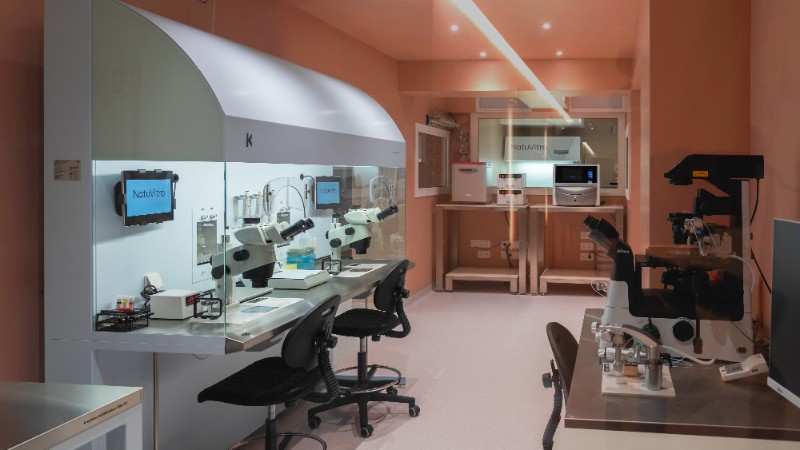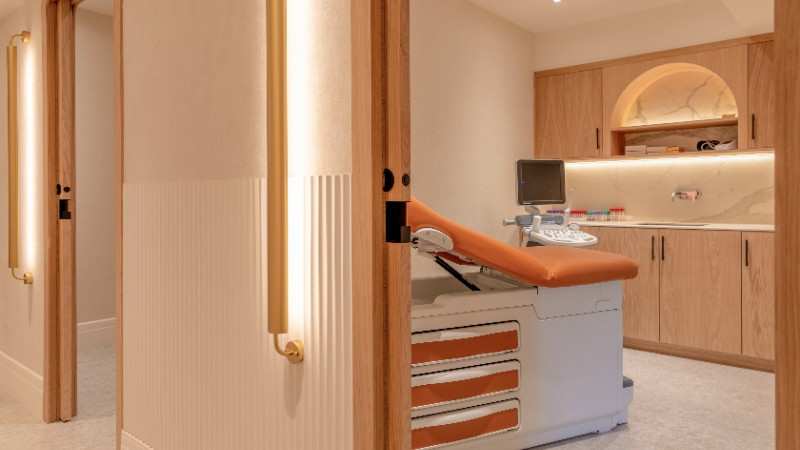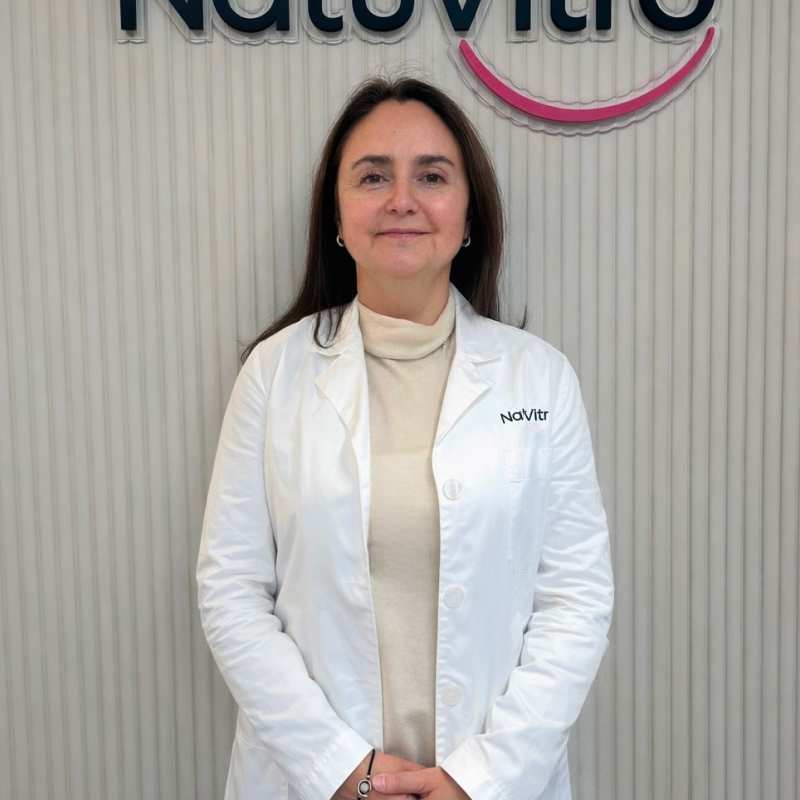
What is an incompatibility between partners when conceiving a child?
An immunological incompatibility between spouses can sometimes hinder the success of a pregnancy. This is a situation in which the body of one partner perceives the reproductive cells of the other as foreign and triggers an immune response. The normal process of fertilization, embryo implantation, and even pregnancy is then disrupted.
This type of incompatibility does not depend on the psychological or emotional aspects of the relationship but is related to immunological, genetic, and cellular mechanisms. Often, couples are not aware of this issue until they have undergone a thorough diagnosis.
Causes of immunological incompatibility
A couple that has been unsuccessfully trying to conceive for 6 to 12 months and has regular sexual activity without contraception should undergo a complete medical examination. Women are advised to consult a gynecologist-obstetrician or a reproduction specialist, and men a urologist or andrologist. It is more effective to start diagnostics simultaneously for both partners.
Immunological incompatibility can be caused by various factors:
- the production of anti-sperm antibodies (ASA) directed against sperm;
- autoimmune diseases, in which the body attacks its own tissues;
- the overlap of histocompatibility genes (HLA);
- close marriages that increase the probability of HLA matches;
- genetic and hereditary anomalies;
- chronic infections and inflammation of the reproductive organs;
- the consequences of surgery and trauma.
Mechanisms of immune rejection
Anti-sperm antibodies (ASA)
In men, ASAs can cause agglutination (clumping) of sperm and reduce their motility, preventing normal passage to the egg. Causes of their appearance:
- varicocele - dilation of the veins of the spermatic cord;
- cryptorchidism - undescended testicles;
- genitourinary infections;
- inflammatory diseases such as prostatitis;
- a trauma or surgical intervention on the organs of the scrotum.
In women, anti-sperm antibodies can be produced in the cervical mucus, endometrium, or blood. This blocks sperm even before they enter the uterus. The loss of immunological tolerance can be caused by:
- a chronic pelvic inflammatory disease;
- autoimmune processes such as systemic lupus erythematosus;
- repeated sexual intercourse without conception, which increases the sensitivity of the immune system.
HLA matching (histocompatibility genes)
The HLA (human leukocyte antigen) class II genes play a key role in the immune system. If the partners have a high degree of HLA compatibility, the woman's body may not recognize the embryo as partially foreign. This reduces the production of protective factors necessary for the implantation and development of the embryo.
This situation increases the risk of
- early pregnancy failure;
- habitual miscarriage;
- failure of implantation after IVF;
- pregnancy interruption without apparent reason.
Diagnosis of immunological incompatibility
The following diagnostic methods are used to determine the causes of immunological incompatibility:
- Extended spermogram - evaluation of sperm quality and morphology;
- MAR test - detection of anti-sperm antibodies on the surface of sperm;
- Ultrasound of the pelvic organs in women and the scrotum in men - detection of anatomical anomalies;
- HLA typing - determination of the degree of histocompatibility match;
- Postcoital test (Shuvarsky) - analysis of the interaction between sperm and cervical mucus;
- Test Kurzrock-Miller - laboratory model of interaction between germ cells;
- Test Isojim - determination of ASA in blood and other biological fluids.
How to overcome immunological incompatibility
Modern reproductive medicine offers effective solutions that allow couples with immunological incompatibility to conceive and give birth to a child, even in the most difficult cases.
In vitro fertilization (IVF)
This procedure allows bypassing the natural barriers created by the immune system. Fertilization occurs in the laboratory, and the embryo is then transferred to the woman's uterus. This method is particularly effective when the level of anti-sperm antibodies is high.
IVF with egg donation
This technique is used in cases of ovarian function impairment, autoimmune disease, or high risk of genetic pathology. The use of donor oocytes significantly increases the chances of successful conception and delivery.
IVF with double donation
This technique is used in the most complex clinical cases, when both the man and the woman have severe immunological, genetic, or morphological anomalies. Donor eggs and sperm are used. This method eliminates the risk of immune conflict between partners.
Preimplantation genetic diagnosis (PGD)
Preimplantation genetic diagnosis allows testing embryos for genetic and chromosomal abnormalities before transferring them into the uterine cavity. This is particularly important when immunological or hereditary pathologies are suspected. This technique also allows for the exclusion of embryos with an undesirable HLA profile.
Immunotherapy
Can be administered in the event of confirmed immune conflict. Such as:
- Plasmapheresis (purification of blood from antibodies);
- Administration of intravenous immunoglobulins (IVIG);
- Administration of corticosteroids to suppress immune activity;
- Administration of anticoagulants for coagulation disorders caused by immune factors.
Immunotherapy is sometimes combined with IVF to increase the chances of embryo implantation.
Spousal immunological incompatibility is an important but not fatal infertility issue. Thanks to modern diagnostic and treatment methods, it is possible to determine the exact nature of the problem and choose the most effective solution. It is important to consult specialists in a timely manner.
At Natuvitro clinic, reproduction specialists conduct comprehensive diagnostics, develop individual treatment plans, and support couples at all stages, from the first visit to the birth of the long-awaited child.
Our experts are ready to examine your case history, clarify your choices, and address every question you have.
Don't wait to make informed decisions – your personalized guidance awaits!
- Spain (España)+34
- France (La France)+33
- Italy (Italia)+39
- United Kingdom+44
- United States+1
- Belgium (België)+32
- Switzerland (Schweiz/Suisse)+41
- Germany (Deutschland)+49
- Netherlands (Nederland)+31
- Afghanistan (افغانستان)+93
- Albania (Shqipëri)+355
- Algeria (الجزائر)+213
- American Samoa+1
- Andorra+376
- Angola+244
- Anguilla+1
- Antigua and Barbuda+1
- Argentina+54
- Armenia (Հայաստան)+374
- Aruba+297
- Ascension Island+247
- Australia+61
- Austria (Österreich)+43
- Azerbaijan (Azərbaycan)+994
- Bahamas+1
- Bahrain (البحرين)+973
- Bangladesh (বাংলাদেশ)+880
- Barbados+1
- Belarus (Беларусь)+375
- Belize+501
- Benin (Bénin)+229
- Bermuda+1
- Bhutan (འབྲུག)+975
- Bolivia+591
- Bosnia and Herzegovina (Босна и Херцеговина)+387
- Botswana+267
- Brazil (Brasil)+55
- British Indian Ocean Territory+246
- British Virgin Islands+1
- Brunei+673
- Bulgaria (България)+359
- Burkina Faso+226
- Burundi (Uburundi)+257
- Cambodia (កម្ពុជា)+855
- Cameroon (Cameroun)+237
- Canada+1
- Cape Verde (Kabu Verdi)+238
- Caribbean Netherlands+599
- Cayman Islands+1
- Central African Republic (République centrafricaine)+236
- Chad (Tchad)+235
- Chile+56
- China (中国)+86
- Christmas Island+61
- Cocos (Keeling) Islands+61
- Colombia+57
- Comoros (جزر القمر)+269
- Congo (DRC) (Jamhuri ya Kidemokrasia ya Kongo)+243
- Congo (Republic) (Congo-Brazzaville)+242
- Cook Islands+682
- Costa Rica+506
- Côte d’Ivoire+225
- Croatia (Hrvatska)+385
- Cuba+53
- Curaçao+599
- Cyprus (Κύπρος)+357
- Czech Republic (Česká republika)+420
- Denmark (Danmark)+45
- Djibouti+253
- Dominica+1
- Dominican Republic (República Dominicana)+1
- Ecuador+593
- Egypt (مصر)+20
- El Salvador+503
- Equatorial Guinea (Guinea Ecuatorial)+240
- Eritrea+291
- Estonia (Eesti)+372
- Eswatini+268
- Ethiopia+251
- Falkland Islands (Islas Malvinas)+500
- Faroe Islands (Føroyar)+298
- Fiji+679
- Finland (Suomi)+358
- French Guiana (Guyane française)+594
- French Polynesia (Polynésie française)+689
- Gabon+241
- Gambia+220
- Georgia (საქართველო)+995
- Ghana (Gaana)+233
- Gibraltar+350
- Greece (Ελλάδα)+30
- Greenland (Kalaallit Nunaat)+299
- Grenada+1
- Guadeloupe+590
- Guam+1
- Guatemala+502
- Guernsey+44
- Guinea (Guinée)+224
- Guinea-Bissau (Guiné Bissau)+245
- Guyana+592
- Haiti+509
- Honduras+504
- Hong Kong (香港)+852
- Hungary (Magyarország)+36
- Iceland (Ísland)+354
- India (भारत)+91
- Indonesia+62
- Iran (ایران)+98
- Iraq (العراق)+964
- Ireland+353
- Isle of Man+44
- Israel (ישראל)+972
- Italy (Italia)+39
- Jamaica+1
- Japan (日本)+81
- Jersey+44
- Jordan (الأردن)+962
- Kazakhstan (Казахстан)+7
- Kenya+254
- Kiribati+686
- Kosovo+383
- Kuwait (الكويت)+965
- Kyrgyzstan (Кыргызстан)+996
- Laos (ລາວ)+856
- Latvia (Latvija)+371
- Lebanon (لبنان)+961
- Lesotho+266
- Liberia+231
- Libya (ليبيا)+218
- Liechtenstein+423
- Lithuania (Lietuva)+370
- Luxembourg+352
- Macau (澳門)+853
- North Macedonia (Македонија)+389
- Madagascar (Madagasikara)+261
- Malawi+265
- Malaysia+60
- Maldives+960
- Mali+223
- Malta+356
- Marshall Islands+692
- Martinique+596
- Mauritania (موريتانيا)+222
- Mauritius (Moris)+230
- Mayotte+262
- Mexico (México)+52
- Micronesia+691
- Moldova (Republica Moldova)+373
- Monaco+377
- Mongolia (Монгол)+976
- Montenegro (Crna Gora)+382
- Montserrat+1
- Morocco (المغرب)+212
- Mozambique (Moçambique)+258
- Myanmar (Burma) (မြန်မာ)+95
- Namibia (Namibië)+264
- Nauru+674
- Nepal (नेपाल)+977
- New Caledonia (Nouvelle-Calédonie)+687
- New Zealand+64
- Nicaragua+505
- Niger (Nijar)+227
- Nigeria+234
- Niue+683
- Norfolk Island+672
- North Korea (조선 민주주의 인민 공화국)+850
- Northern Mariana Islands+1
- Norway (Norge)+47
- Oman (عُمان)+968
- Pakistan (پاکستان)+92
- Palau+680
- Palestine (فلسطين)+970
- Panama (Panamá)+507
- Papua New Guinea+675
- Paraguay+595
- Peru (Perú)+51
- Philippines+63
- Poland (Polska)+48
- Portugal+351
- Puerto Rico+1
- Qatar (قطر)+974
- Réunion (La Réunion)+262
- Romania (România)+40
- Russia (Россия)+7
- Rwanda+250
- Saint Barthélemy+590
- Saint Helena+290
- Saint Kitts and Nevis+1
- Saint Lucia+1
- Saint Martin (Saint-Martin (partie française))+590
- Saint Pierre and Miquelon (Saint-Pierre-et-Miquelon)+508
- Saint Vincent and the Grenadines+1
- Samoa+685
- San Marino+378
- São Tomé and Príncipe (São Tomé e Príncipe)+239
- Saudi Arabia (المملكة العربية السعودية)+966
- Senegal (Sénégal)+221
- Serbia (Србија)+381
- Seychelles+248
- Sierra Leone+232
- Singapore+65
- Sint Maarten+1
- Slovakia (Slovensko)+421
- Slovenia (Slovenija)+386
- Solomon Islands+677
- Somalia (Soomaaliya)+252
- South Africa+27
- South Korea (대한민국)+82
- South Sudan (جنوب السودان)+211
- Spain (España)+34
- Sri Lanka (ශ්රී ලංකාව)+94
- Sudan (السودان)+249
- Suriname+597
- Svalbard and Jan Mayen+47
- Sweden (Sverige)+46
- Syria (سوريا)+963
- Taiwan (台灣)+886
- Tajikistan+992
- Tanzania+255
- Thailand (ไทย)+66
- Timor-Leste+670
- Togo+228
- Tokelau+690
- Tonga+676
- Trinidad and Tobago+1
- Tunisia (تونس)+216
- Turkey (Türkiye)+90
- Turkmenistan+993
- Turks and Caicos Islands+1
- Tuvalu+688
- U.S. Virgin Islands+1
- Uganda+256
- Ukraine (Україна)+380
- United Arab Emirates (الإمارات العربية المتحدة)+971
- Uruguay+598
- Uzbekistan (Oʻzbekiston)+998
- Vanuatu+678
- Vatican City (Città del Vaticano)+39
- Venezuela+58
- Vietnam (Việt Nam)+84
- Wallis and Futuna (Wallis-et-Futuna)+681
- Western Sahara (الصحراء الغربية)+212
- Yemen (اليمن)+967
- Zambia+260
- Zimbabwe+263
- Åland Islands+358
Visit our clinic
Location
Call us now
Leave a message










